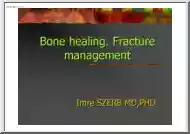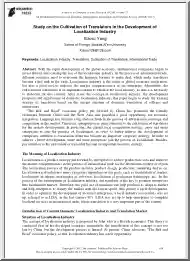Datasheet
Year, pagecount:2002, 3 page(s)
Language:English
Downloads:5
Uploaded:September 16, 2024
Size:698 KB
Institution:
-
Comments:
Attachment:-
Download in PDF:Please log in!
No comments yet. You can be the first!
What did others read after this?
Content extract
How to Write a Summary With thanks to: Swales, John M. and Christine B Feat Academic Writing for Graduate Students, Essential Tasks and Skills. Ann Arbor: U Michigan P, 1994 105-130 Preparing to Write: To write a good summary it is important to thoroughly understand the material you are working with. Here are some preliminary steps in writing a summary 1. Skim the text, noting in your mind the subheadings If there are no subheadings, try to divide the text into sections. Consider why you have been assigned the text Try to determine what type of text you are dealing with. This can help you identify important information. 2. Read the text, highlighting important information and taking notes 3. In your own words, write down the main points of each section 4. Write down the key support points for the main topic, but do not include minor detail 5. Go through the process again, making changes as appropriate For example: Global Implications of Patent Law Variation A patent is an exclusive
right to use an invention for a certain period of time, which is given to an inventor as compensation for disclosure of an invention. Although it would be beneficial for the world economy to have uniform patent laws, each country has its own laws designed to protect domestic inventions and safeguard technology. Despite widespread variation, patent laws generally fall under one of two principles: the first-to-file and first-toinvent. The first-to-file principle awards a patent to the person or institution that applies for a patent first, while the first-toinvent principle grants the patent to the person or institution that was first to invent – and can prove it. Most countries have adopted the first-to-file system. However, the United States maintains a first-to-invent system, despite obvious shortcomings. A result of countries employing different patent law principles is inconsistency of patent ownership. This first sentence is a general definition. It may be safe to assume that
your audience is already familiar with patents; thus you do not have to include it in your summary. This is the main idea. The classification of the two principles is important. Ignore specific details about the different principles. The terms are self-explanatory It is important to point out that most of the world follows one system and the United States another. Courtesy the Odegaard Writing & Research Center http://depts.washingtonedu/owrc Include a description of the problem surrounding variation in patent laws. Patent ownership is not recognized globally. On the contrary, ownership may change depending on the country. It is not uncommon for an invention to have two patent owners – one in the United States and one in the rest of the world. This unclear ownership often has economic consequences. If a company is interested in using a patented invention, it may be unable to receive permission from both patent owners, which in turn may prevent manufacture of a particular
product. Even if permission is received from both owners, pay royalties to both may be quite costly. In this case, if the invention is useful enough, a company may proceed and pass on the added cost to consumers. International economic tension has also been increasing as a result of differing policies. Many foreign individuals and companies believe that they are at a serious disadvantage in the United States with regard to patent ownership because of the logistical difficulties in establishing first-toinvent status. Further, failure of the United States to recognize patent ownership in other countries is in violation of the Paris Conventions on Industrial Properties, which requires all member nations to treat all patents equally. The conflict surrounding patents has prompted the World Intellectual Properties Organization (WIPO) to lobby for universality in patent laws. WIPO maintains that the first necessary step involves compelling the United States to reexamine its patent principle,
taking into account the reality of a global economy. This push may indeed result in more global economic cooperation. Provide some support/explanation for the problem, but not all the details Describe this other problem associated with differing patent principles. Provide some explanation, but not all the details. Describe the action taken to solve the problem. Courtesy the Odegaard Writing & Research Center http://depts.washingtonedu/owrc Writing the Summary: When writing the summary there are three main requirements: 1. The summary should cover the original as a whole 2. The material should be presented in a neutral fashion 3. The summary should be a condensed version of the material, presented in your own words. * Also do not include anything that does not appear in the original. (Do not include your own comments or evaluation.) and Be sure to identify your source. For example: In his paper “Global Implications of Patent Law Variation,” Koji Suzuki (1991) states
that lack of consistency in the world’s patent laws is a serious problem. In most of the world, patent ownership is given to the inventor that is first to file for a patent. However, the United States maintains a first-to-invent policy. In view of this, patent ownership can change depending on the country. Multiple patent ownership can result in economic problems; however, most striking is the international tension it causes. The fact that the United States does not recognize patent ownership in other countries, in violation of the Paris Convention on Industrial Properties, has prompted the World Intellectual Properties Organization (WIPO) to push the United States to review its existing patent law principles. Courtesy the Odegaard Writing & Research Center http://depts.washingtonedu/owrc
right to use an invention for a certain period of time, which is given to an inventor as compensation for disclosure of an invention. Although it would be beneficial for the world economy to have uniform patent laws, each country has its own laws designed to protect domestic inventions and safeguard technology. Despite widespread variation, patent laws generally fall under one of two principles: the first-to-file and first-toinvent. The first-to-file principle awards a patent to the person or institution that applies for a patent first, while the first-toinvent principle grants the patent to the person or institution that was first to invent – and can prove it. Most countries have adopted the first-to-file system. However, the United States maintains a first-to-invent system, despite obvious shortcomings. A result of countries employing different patent law principles is inconsistency of patent ownership. This first sentence is a general definition. It may be safe to assume that
your audience is already familiar with patents; thus you do not have to include it in your summary. This is the main idea. The classification of the two principles is important. Ignore specific details about the different principles. The terms are self-explanatory It is important to point out that most of the world follows one system and the United States another. Courtesy the Odegaard Writing & Research Center http://depts.washingtonedu/owrc Include a description of the problem surrounding variation in patent laws. Patent ownership is not recognized globally. On the contrary, ownership may change depending on the country. It is not uncommon for an invention to have two patent owners – one in the United States and one in the rest of the world. This unclear ownership often has economic consequences. If a company is interested in using a patented invention, it may be unable to receive permission from both patent owners, which in turn may prevent manufacture of a particular
product. Even if permission is received from both owners, pay royalties to both may be quite costly. In this case, if the invention is useful enough, a company may proceed and pass on the added cost to consumers. International economic tension has also been increasing as a result of differing policies. Many foreign individuals and companies believe that they are at a serious disadvantage in the United States with regard to patent ownership because of the logistical difficulties in establishing first-toinvent status. Further, failure of the United States to recognize patent ownership in other countries is in violation of the Paris Conventions on Industrial Properties, which requires all member nations to treat all patents equally. The conflict surrounding patents has prompted the World Intellectual Properties Organization (WIPO) to lobby for universality in patent laws. WIPO maintains that the first necessary step involves compelling the United States to reexamine its patent principle,
taking into account the reality of a global economy. This push may indeed result in more global economic cooperation. Provide some support/explanation for the problem, but not all the details Describe this other problem associated with differing patent principles. Provide some explanation, but not all the details. Describe the action taken to solve the problem. Courtesy the Odegaard Writing & Research Center http://depts.washingtonedu/owrc Writing the Summary: When writing the summary there are three main requirements: 1. The summary should cover the original as a whole 2. The material should be presented in a neutral fashion 3. The summary should be a condensed version of the material, presented in your own words. * Also do not include anything that does not appear in the original. (Do not include your own comments or evaluation.) and Be sure to identify your source. For example: In his paper “Global Implications of Patent Law Variation,” Koji Suzuki (1991) states
that lack of consistency in the world’s patent laws is a serious problem. In most of the world, patent ownership is given to the inventor that is first to file for a patent. However, the United States maintains a first-to-invent policy. In view of this, patent ownership can change depending on the country. Multiple patent ownership can result in economic problems; however, most striking is the international tension it causes. The fact that the United States does not recognize patent ownership in other countries, in violation of the Paris Convention on Industrial Properties, has prompted the World Intellectual Properties Organization (WIPO) to push the United States to review its existing patent law principles. Courtesy the Odegaard Writing & Research Center http://depts.washingtonedu/owrc




